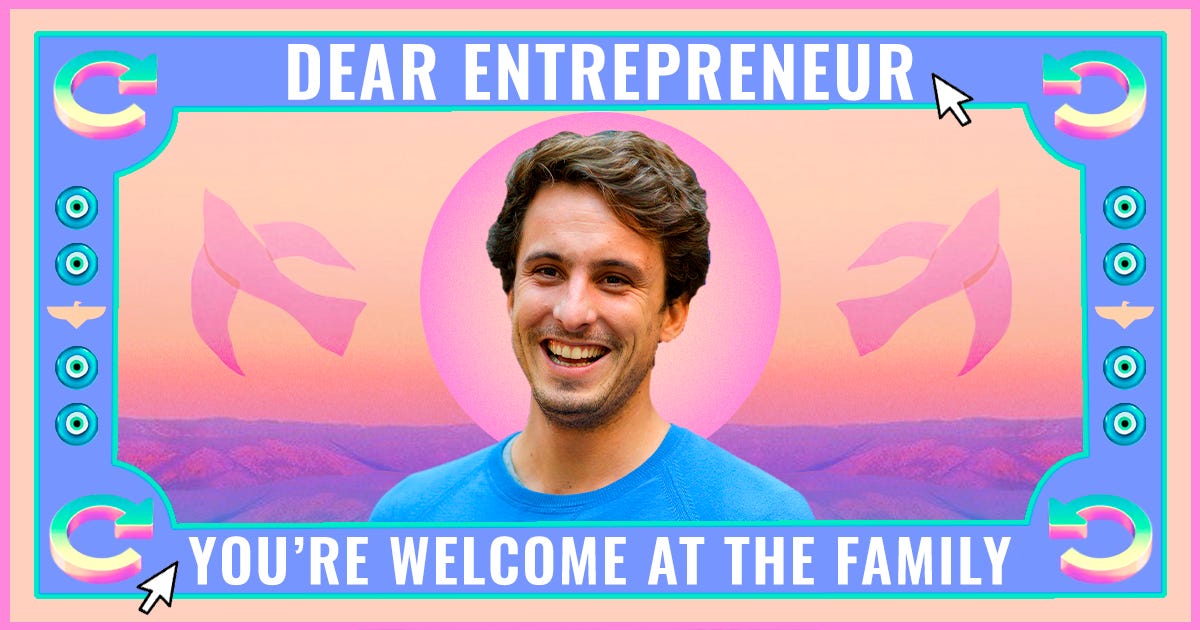It's OK to sell.
“Silicon Valley hates quitters”: once you’ve signed up for entrepreneurship, you stay at it for life. Can you even consider selling your company before an IPO?
VCs have a love-hate relationship with exits
VCs are in the business of financing outliers, companies with a theoretically infinite upside. And so while exits provide the cash that will be distributed back to their investors, they’re also the end of the dream of even larger outcomes.
While assessing a company, they spend a great amount of time trying to understand the motivations of founders. They want to grasp the relentlessness with which founders will pursue the opportunity. Between the lines, they are also checking to see that the founders wouldn't sell too early in the journey.
Money doesn't drive founders
Most of the great founders I know don't do it for the money. Yet, they quickly have 100% of their net worth and 100% of their mental bandwidth tied to one opportunity, and it’s natural for them to envision a potential exit. Yet the subject is completely taboo with most investors: admitting you might not want to push through to build a $10B business would seriously undermine your next fundraising round.
Founders that consider selling are not bad founders
Reid Hastings tried to sell Netflix to Blockbuster for $50M.
Larry Page & Sergey Brin tried to sell Google for $1M.
Exit conversations should not be taboo.
Investors map the exit scenarios of each asset for their LPs. I believe they should have the same conversations with founders.
"If you succeed in signing 100 clients and securing a leading position in the UK, we could foresee a $100M exit to a larger US competitor."
"If you succeed in expanding to 3 geographies, you could enter the scope of PE funds and be bought out for $500M."
"If you reach $100M in revenue, we can definitely aim at a Nasdaq IPO."
If investors and entrepreneurs clearly expressed their expectations without judgement, it would reduce uncertainty on both sides and let founders execute in better conditions. A plan that can change over time is better than no plan.
Founders are in the dark.
In ecosystems with few exits, founders have no idea what their exit options actually are, whether that means selling all or just part of their business.
There are actually two types of companies:
companies that get acquired
companies that get sold
Founders who are looking for liquidity are probably in the latter group, and they should not compare themselves with companies that get acquired. They will often need much more revenue and time to obtain similar offers.
I'm gonna make him an offer he can't refuse.
"These entrepreneurs don't want to sell (largely inspired [by] our success), but at a high enough price — like $500m or $1b — they'd have to consider it"
This is what Mark Zuckerberg emailed his CFO about the possibility of buying Instagram.
Even in less favorable conditions, exiting can make a great story. Sometimes selling is the best choice for founders, for the company, and yes, for investors. The conversation should be open, there are mechanisms to re-align everyone's incentives if needed.
Great investors are supportive.
Founders and investors can find the solution that is in the company's best interests.
Great investors will help management cash out to secure themselves while still pursuing the bigger opportunity.
Great investors will help bring in new management to take over from founders who want to divest.
Great investors know they will be able to invest in a founder's future business if they have been really supportive the first time around.
Second-time founders can dream big.
Tesla, Slack, and Stripe wouldn't exist if Elon Musk, Stewart Butterfield, and Patrick Collison hadn't exited their first businesses.
Founders, follow your heart and dream big. Investors will follow you again.
The Family’s next startup batch will happen remotely starting in January! If you’re an entrepreneur willing to grow your startup in the best conditions, apply here. Get ready for an intense 6-week program: getting smart advice, accessing top operators and fundraising with the best investors.




